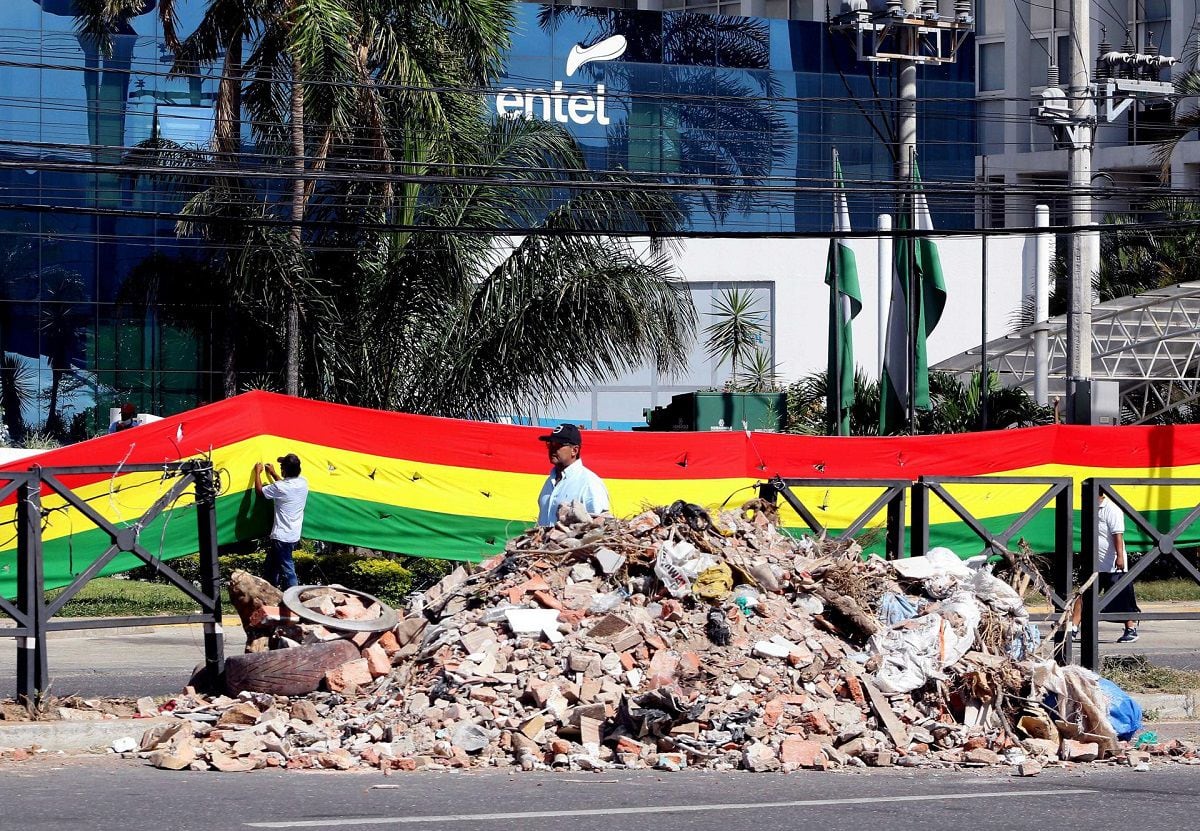Santa Cruzthe largest region and economic engine of bolivianfulfilled this Thursday 34 days on strike waiting for the national Parliament to approve a law on the census processone day after its leaders accepted that the registration be in 2024 and not in 2023 as they initially claimed.
The street blockades have become more numerous in the regional capital and the mobilized are more radical, since rubble and earth have now been dumped in various places to prevent the passage of cars, motorcycles and bicycles.
LOOK HERE: The largest Bolivian region maintains a strike and insists that there be a law for the census
At some blockade points, even ambulances or health personnel are not allowed to pass and even some vehicles were stoned on this day near the so-called Fourth Ring, according to EFE.
In addition, a group of protesters held a vigil outside the offices of the state-owned National Telecommunications Company (Entel) to prevent work there.
The announcement made the day before by the governor of Santa Cruz, Luis Fernando Camacho, and the representatives of the Inter-institutional Census Committee, that it was decided to accept the survey in 2024, did not go down well with the mobilized, since the Santa Cruz proposal to do it in 2023 it is no longer sustainable “technicallydue to the prolongation of the conflict.

The leaders of Santa Cruz asked the parliamentarians of the opposition forces Creemos and Comunidad Ciudadana (CC) to accept the law that sets the registration for 2024, as established in the decree signed a few days ago by the Bolivian president, Luis Arce, to be certain about the census process through the norm.
MORE INFORMATION: Bolivia: the tension over the population census is transferred to Congress
They also resolved to maintain the strike until the law is approved.
Pay attention to the Legislative
The rector of the state Autonomous University Gabriel René Moreno (UAGRM), Vicente Cuéllar, told the media that the expectations about what will happen in the next few hours in the lower house “are great”, since a regulation on the census “It would give certainty” to the mobilized sectors and to the “Bolivian people.”
“This law should consider the issue of the results of the census, the redistribution of economic resources, but also the parliamentary distribution,” Cuellar maintained.
In his opinion, “scenes have changed” compared to the previous days, in which the discussion on the law was stuck in the Constitution Commission of Deputies, since now the opposition will no longer insist on the census in 2023 and consensus is sought to bring a single project before the plenary session.
“At this moment we are in the hands of the ruling party because it has a majority in Congress and the Senate and today we only hope that everything that the representatives have stated is translated into a law,” Cuellar added.
ALSO SEE: Strike and crisis in Bolivia | What happens in Santa Cruz and why the strike would be radicalized
In the governmental Movement for Socialism (MAS) there are two currents, one that is willing to discuss the law and another, close to former President Evo Morales, who maintains that a decree is enough.
The census was to be carried out this month, but in July the Government postponed it until 2024 arguing “technical problems”, which caused the rejection especially of Santa Cruz that has been on strike for 34 days for the prompt completion of the registration and the timely application of its data.
Once the project is analyzed and approved in the Deputies, it will go to the Senate, where the ruling party anticipated that all the regulatory procedures for its analysis will be fulfilled, which means that the solution to the conflict will not be prompt.
Source: Elcomercio
I am Jack Morton and I work in 24 News Recorder. I mostly cover world news and I have also authored 24 news recorder. I find this work highly interesting and it allows me to keep up with current events happening around the world.

:quality(75)/cloudfront-us-east-1.images.arcpublishing.com/elcomercio/3AX6UA5ZRBGZ5L6F5WV5WYGVSI.jpg)

:quality(75)/cloudfront-us-east-1.images.arcpublishing.com/elcomercio/OPDJRZJ3SNBQVFWMFD5K4UN6T4.jpg)
:quality(75)/cloudfront-us-east-1.images.arcpublishing.com/elcomercio/56COWKPMZ5BWTO5L7XHDW4XX4I.jpg)
:quality(75)/cloudfront-us-east-1.images.arcpublishing.com/elcomercio/J6J3NQGC35AH5EJNZESIU4J6NQ.jpg)
:quality(75)/cloudfront-us-east-1.images.arcpublishing.com/elcomercio/LRULJ2IG6NCTVG45H7RKXALHKU.jpg)
